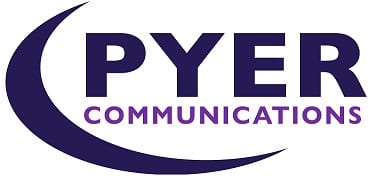The following article will explain, in simple terms, the advantages of ISDN services by looking at the considerations of business owners. ISDN lines are well-defined standard digital lines that are robust and practical .Voice Traffic is going to be considered, mostly due to the factor that other data services, such as DSL, are more practical for data usage.
ISDN services come in 2 different variants:
- Basic rate (BRI)- in multiples of 2 channels
- Primary rate (PRI) – starting from 10 channels and increasing up to 20 or 30 channels. Some carriers offer the option to increase the initial 10 channels to any number of channels up to 30.
Technically there is no difference between BRI and PRI. The PRI variant is recommended if 10 or more channels are needed. Multiple BRI services function as a single unit (i.e. 5 x BRI/SDN2 will work as PRI 10). Multiple PRI services also function as a single unit.
Quality and reliability of the ISDN lines is very high and offer additional practical advantages:
- Guaranteed High Standard Voice Quality (64 Kb/s). This eliminates possible voice quality degradation which can occur when PSTN lines or VoIP services are used. The quality to the exchange is always guaranteed but the final call quality might be affected by network factors. Another advantage over PSTN and VoIP options is that the call connections are instantaneous, with the exception of calls to mobiles that are limited by the network.
- In-dial Number Range. This allows the equipment (PBX), to be programmed with a great degree of flexibility. Examples include
- Individual numbers directed to nominated extension(s)
- Allows calls to be answered by different company names or departments,
- Allows different numbers to be terminated to the same extension, which can be recognised by the user
The industry standard is 100 numbers, and can be greater if required. The In-dial range eliminates the needs for “line hunt” to be set at the exchange. Statistically, the ISDN system line utilisation is superior over PSTN line hunt groups as ISDN systems require fewer lines/channels. This is particularly useful when multiple companies, departments are operating on the same site. Most PBX systems and carriers will allow outgoing numbers (i.e. the number showing up on mobile phones) to be chosen. This directs the person who was called back to the original caller rather than to a receptionist. This is more efficient and frees up receptionists for other tasks. The default feature of ISDN systems is to show incoming caller number. The cost of the in-dial range is generally $30 + per month and is valuable investment for most businesses.
- Analogue Extensions – ISDN service. When implemented well on PBX, this allows additional savings on lines due to the fact that services such as faxes, EFTPOS machines, dial up modems, cordless handsets etc. can be incorporated into the system as analogue extensions. This can result in savings of approximately $400 for each separate line/service, which is currently being used via an ISDN service.
- Pricing – ISDN services (especially PRI) are widely available with a range of carriers. There has been significant competition in the Australian market in recent years that has resulted in significant price reductions. Businesses can benefit greatly from the combination of ISDN reliability and flexibility, and at the same time save on call costs and line rental. These saving can be very significant. Although BRI services are provided by Telstra only, there are other carriers who will take on full rebilling at reduced cost. Most carriers will allow you to keep your existing PSTN numbers, so no change of stationery will be required. Most carriers will allow for number portability between different exchanges, which can be a significant cost saving factor when your business is relocating to a different area.
- Voice Mail – PBX systems allow for easy programming and integration of voice mail systems. For example, the system can be programmed so that unanswered calls are answered with a personalised message or the call can be rerouted to the reception or an alternate department.
In conclusion, ISDN systems today are a very viable telecommunication solution for most SME due to their robust construction, reliability, flexibility and price competitiveness.
If you require further information (or you want to get more confused) call PYER Communications on 1300 761 030 or 03 9397 7988. Alternatively you can visit https://pyerphonesystemsmelbourne.com.au/ and PYER communications can provide your business with a personalised professional service.

Recent Comments